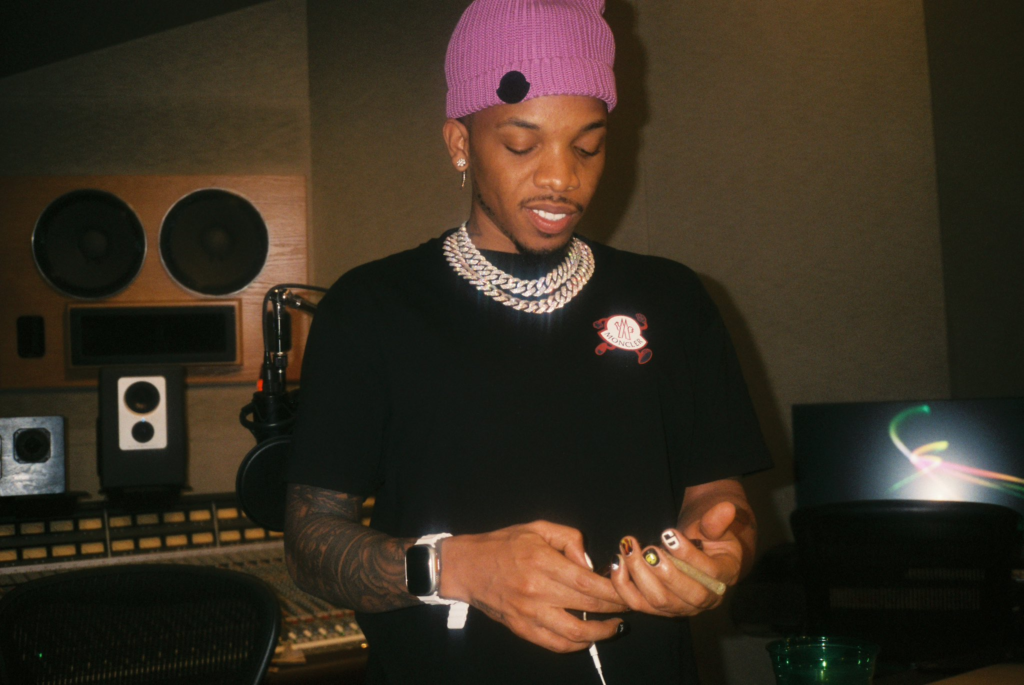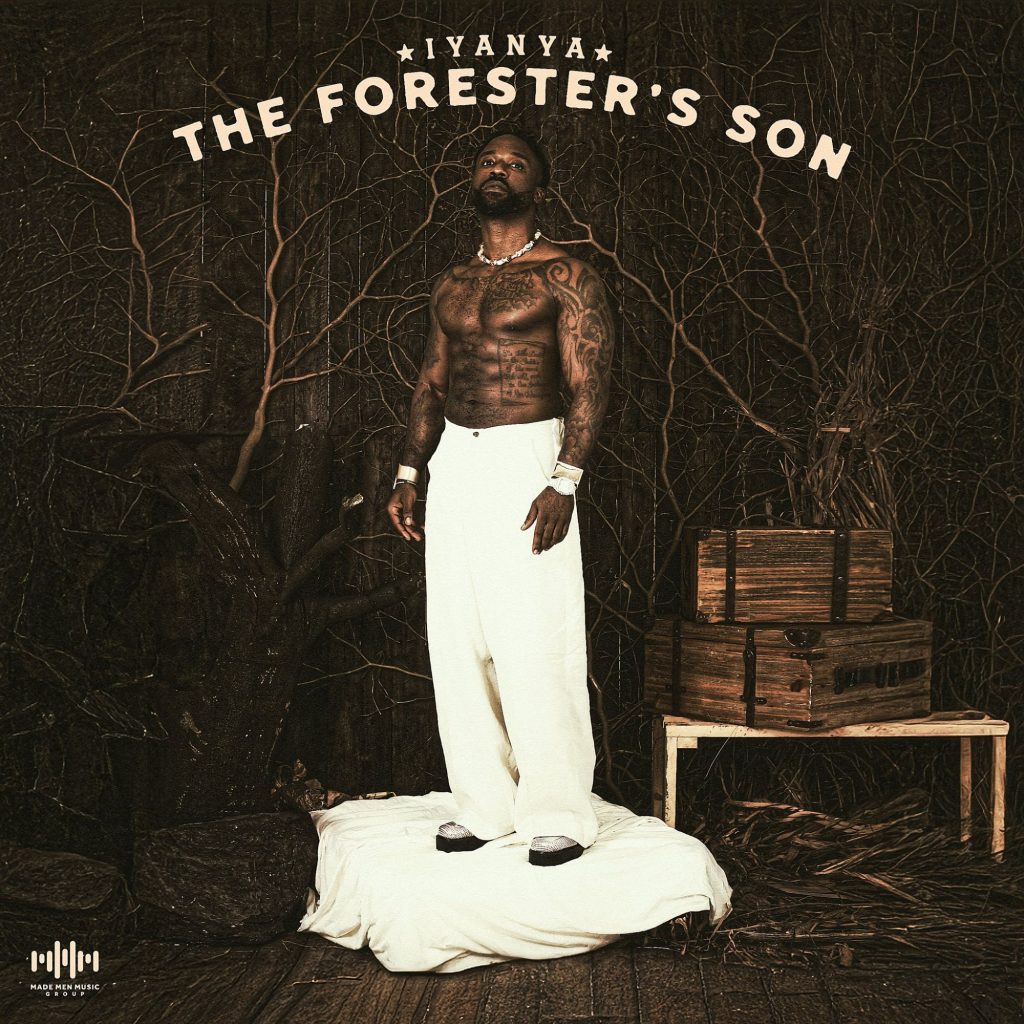It’s no news that Wizkid and Davido were the undisputed popstars phenomenons of the 2010’s, dominating the industry in an unprecedented way. However, midway through their reign in the last decade there was an insurgence of popstars like Runtown, Kizz Daniel and Tekno that challenged the status quo and gave them a run for their dominance.

Tekno had always been a familiar persona in the industry at the turn of the new decade, but asides a few sleeper hit records to his name, his major breakthrough moment didn’t happen until 2015’s Duro. DJ Coublon who was the hottest producer in the country at the time was on a blazing streak after experiencing success with Kizz Daniel’s smash-hit Woju and Duro was built on the same kinetic drums and eclectic guitar strings that defined most of his production. This moment would go on to crystallize a run that would produce Pana and Diana in the ensuing year, that was Tekno’s peak in the mainstream.
Tekno has never been an artist that was associated with grand concepts or a deeper subtext of meaning in his music. All his hit songs and even the lesser knowns ones have always been the simplest ones around, sometimes even too simple to their own detriment. In an era that was defined by hit records that were built on this resonant simplicity in message and groovy beats, it’s no wonder why Tekno was a star.
Over the years, Afrobeats has evolved greatly and whilst at its core, it’s still feel good, groovy music—the messages of our mainstream music has become more multi-faceted. The topics have become more nuanced and the lyrics more intentional and poetic. Our biggest stars are even releasing concept albums with grand, cohesive narrative themes. Simplicity hasn’t exactly been eroded, as the biggest of our songs are still simple in conveying their sentiments, but at their heart they are more than just surface level pop noise.
Omah Lay’s Soso grapples with the debilitating effect of alcohol and sex, when it’s used as coping mechanisms for depression. Burna Boy’s Last Last highlights the highs and grueling lows of heartbreak. Even Asake’s Lonely At The Top that seems like a basic party-starter anthem at face value has an underlying context to its exploration of grandeur and debauchery, in the sense that the partying is all a ploy to fill up the emptiness and loneliness that comes with being extremely successful. Our music has always had substance from time immemorial, but even our club bangers now all have stories brimming under the surface.
This is one of the contributing factors in Tekno losing his place at the top of the pop zeitgeist. When the new generation of popstars rushed in with their poetic lyrics and altè aesthetics, he couldn’t exactly compete. He wasn’t that sort of well-rounded talent and his music lacked the nuance that spurred attention amongst Gen-Z. Even Davido, Wizkid and Olamide had to go through major visual and sonic evolutions to adapt, despite having amassed a dedicated fanbase that ensured they remained largely relevant. And because Tekno didn’t exactly have a cult following either, he struggled to find success whilst retaining his identity.

His debut album, Old Romance coming several years past his commercial prime didn’t exactly help things. It wasn’t a great album and it was plagued with symptoms that keen listeners saw coming. Tekno’s delivery is very simplistic and it’s geared around the formular of repetition and one-liners to build easy familiarity and ensure it’s very easy to sing-along to. This sort of one-dimensional approach is okay in small doses on singles, but can be very tiring over an entire project that’s supposed to feel like an experience and say something substantial.
Besides 2020 was the year of stellar albums. Multiple albums that have gone on to achieve classic status (Made In Lagos, Carpe Diem, Apollo, Twice As Tall, Boo Of The Booless) dropped that same year. So Tekno’s album stood no chance amongst the scores of great albums and even EP’s (Get Layd, For Broken Ears) that defined the lockdown year. However, with his Sophomore album, The More The Better, Tekno has undergone a much needed evolution that would be pivotal in ensuring his relevance.
The title itself hints at Tekno’s own self awareness of the need to evolve and do more than the bare minimum. Do more, that could result in a better project. Hence, The More, The Better. Of course, there is a probability that I’m simply reaching and the title wasn’t borne out of such thought process but that wouldn’t necessarily detract from my point either, because it is evident in the music. Tekno went out of his way to do more on this album and it is indeed a solid improvement on his debut project.
On the midtempo album opener, Twice Shy, Tekno samples Dido’s 1998 classic hit, Thank You. The production is quite grand and impressive with clanging jolts that bring the hook to life. The sentiment is still quite simple, but the writing is more intentional and profound. It is a part inspirational, part-cautionary song that implores the listener to free their mind and “let your mind dey.”
Positives vibes is emphasized on the eponymously titled, The More The Better. The beat has a galloping rhythm to it and it consists of multiple clashing cymbals and visceral percussion. Log drums simmer under the surface, alongside exotic guitar riffs. The chorus of the song is still built on Tekno’s formular of repetitive lined to breed familiarity, but it works because the verses are well written and so the payoff is earned in the build up to that.
We see a very dynamic version of Tekno that goes on a speed-melodic rapping run on the second verse of Flashing Lights, an heartfelt R&B cut that’s this writer’s favorite at the moment. The chorus is the most Tekno thing you’ll ever hear, but once again it works because Tekno paints very vivid, picturesque sonic moments that emphasize the depths of his love and how his lover makes him feel. Despite deviating from the pop soundscape of the album, it still fits in like a glove due to the core production elements being maintained
Peppermint is the single that doesn’t do much in preparing you for the very dynamic version of Tekno you get on the album. It is not a mediocre song, but once again it’s one of those Tekno songs that’s too simple to its own detriment. King Of Pop is more of the same dated formular, but thankfully it is salvaged by its production that has more immersive production that merges Highlife synthesizers and live drums.
The energy is dialed back down to midtempo on Peace Of Mind and Tekno stops playing it safe again with his delivery. He reflects a bit on his past struggles but he doesn’t do enough to evoke resonance, because he doesn’t exactly fixate on one topic. On one part, he’s singing about woman and in another he is musing about his journey. It’s a good song nonetheless, but it doesn’t tug at your emotions like the way Flashing Lights did with its more focused writing.

Lokation treads the familiar sonic terrain of the mainstream and it doesn’t in anyway use log drums in a new, refreshing way. The song has the catchiest hook on the album and so it would definitely do it for some people. Pocket is more of the same although more upbeat and at this point, the album begins to sound a bit monotonous. The production is really cohesive and that’s a testament to the intentionality, but the thin line that separates tight cohesion and monotony is the range of the artist’s delivery and sadly, Tekno isn’t doing enough in this particular sequence.
Once again, it’s important to note that these songs aren’t bad and might even sound really great when played as singles, but when they follow each other in a sequence, it tends to become stale. Fortunately, Permit comes right after and injects much needed energy into the album. The Highlife synths are back and even more pronounced and the beat structure isn’t similar to the preceding tracks. Tekno also find some interesting pockets on the chorus and verses, thus breathing much needed life into the project.
That energy bleeds on to Borrow, but unlike Permit it lacks a real standout sonic moment, with its uneven structure. The constant belting of “borrow pose” at intervals doesn’t work like other stellar hooks on the album. We venture again into Afro-R&B territory on Regina, featuring Ckay, a new gen artist emblematic of Tekno’s simplicity shortcomings as an artist. The record makes for a very loungy, smooth atmosphere that grows on you if given a chance. But the record once again is very safe in the manner at which the artists approach it.
Play doesn’t do anything sonically interesting either and at this point, it’s clear Tekno has relapsed to his sonic make-up of rhythmic delivery and little dynamism. Nevertheless, the album ends on a high note with Can’t Chase, a Swing record where Tekno communicates in explicit terms that he can’t compromise on certain things and doesn’t bullshit around or chase anyone. It’s a love song but the sentiment is matter-of-fact as opposed to earlier parts on the LP, where he was in his lover-boy feels.
The More The Better shows a lot of intentionality from Tekno. It’s cohesive, so an album experience was prioritized and he shows some much needed dynamism on some records and doesn’t go the usual route of playing it safe. Some songs on it (Flashing Lights, Permit etc) really excel, whilst some are emblematic of Tekno’s one-dimensional approach (Lokation, Pocket, Play.) Overall, it’s a good enough album that should re integrate Tekno back into the mainstream if serviced well with good promotion.
Final Verdict:
Sonic Cohesion: 1.8/2
Unharried Transitions: 1.5/2
Expansive Production: 1.5/2
Songwriting: 0.8/2
Optimal Track Sequencing: 1.4/2
Total: 7.0/10
–This review is written by T.J. Martins, an avid lover of music.






